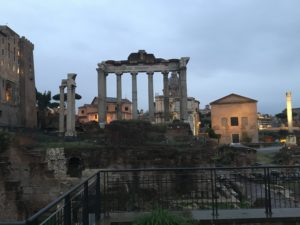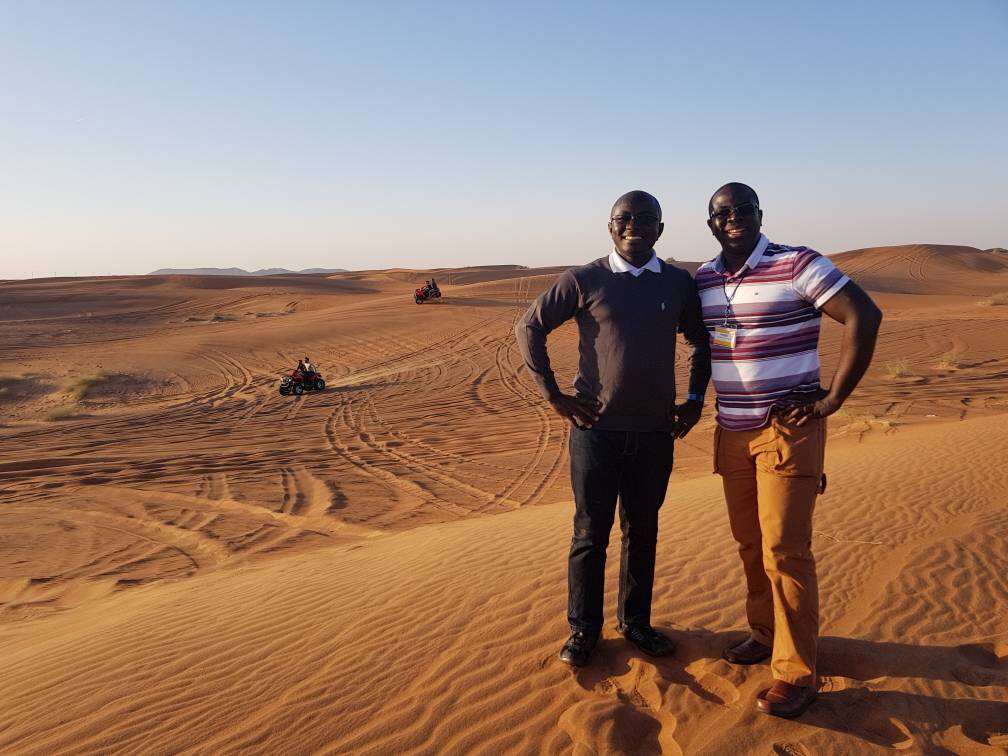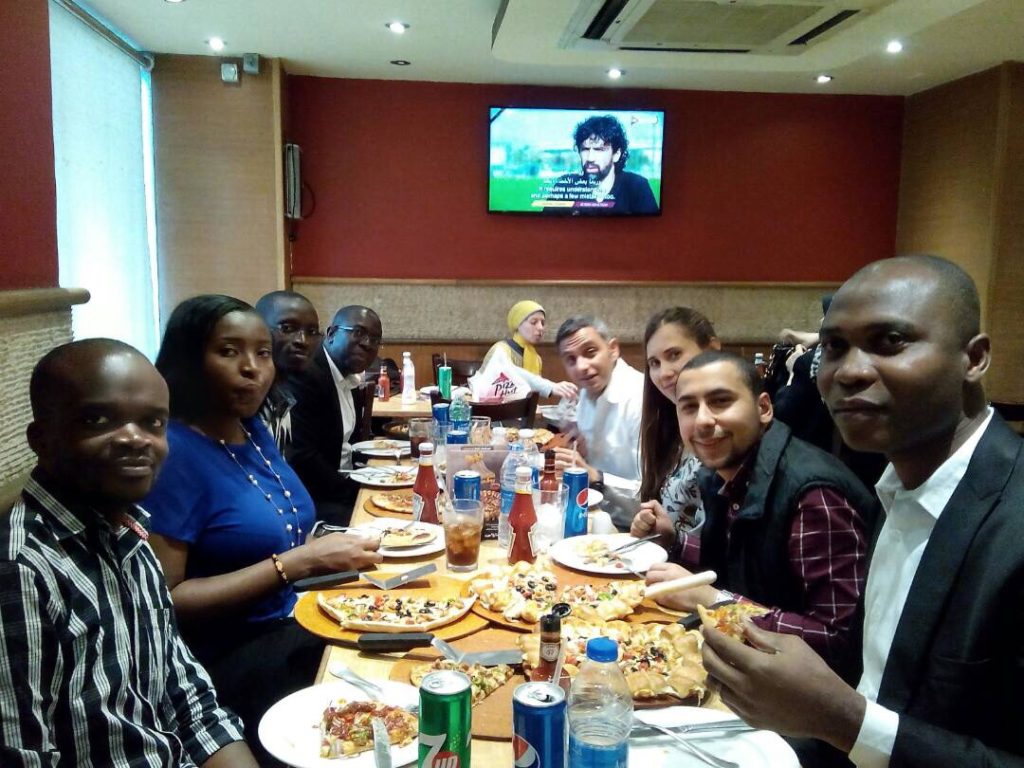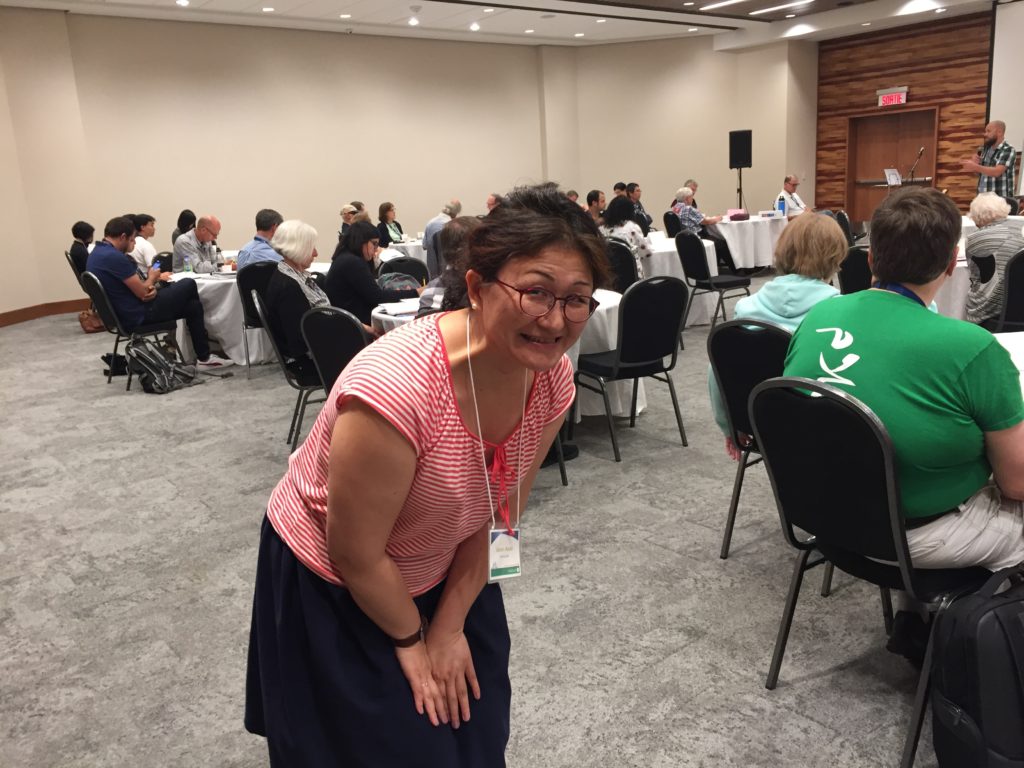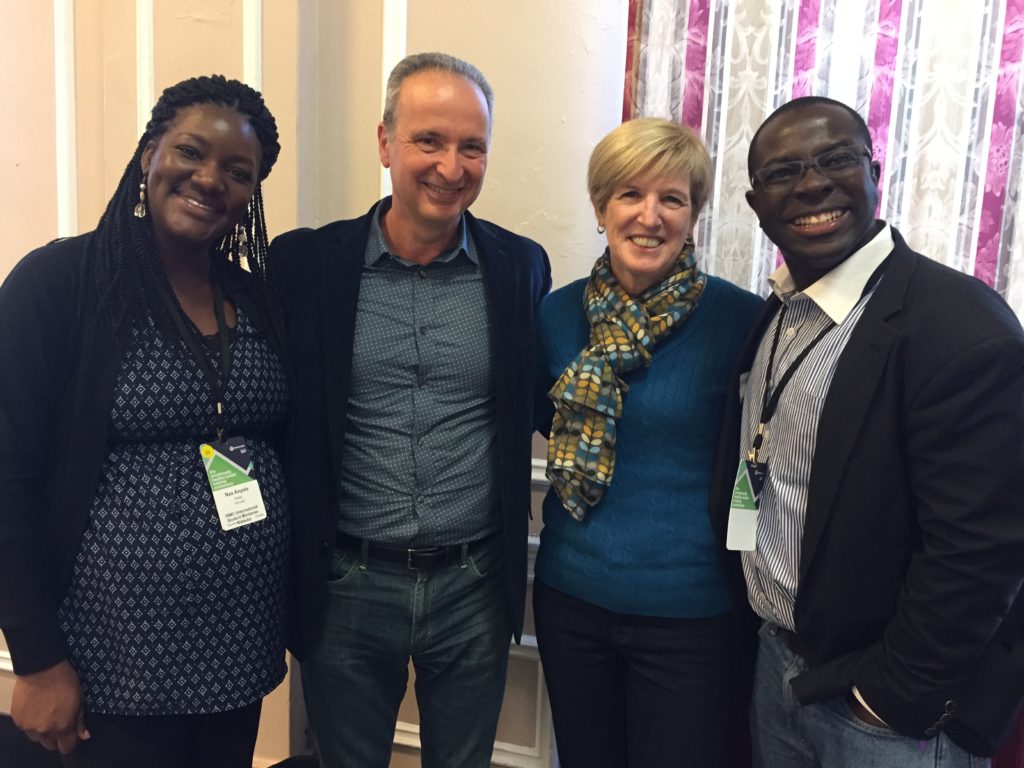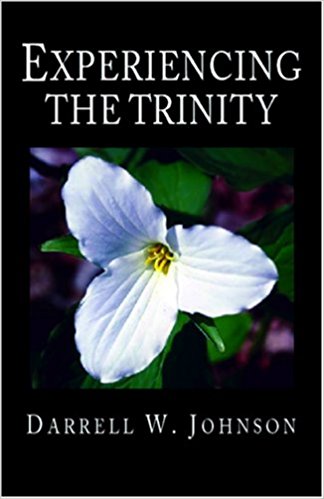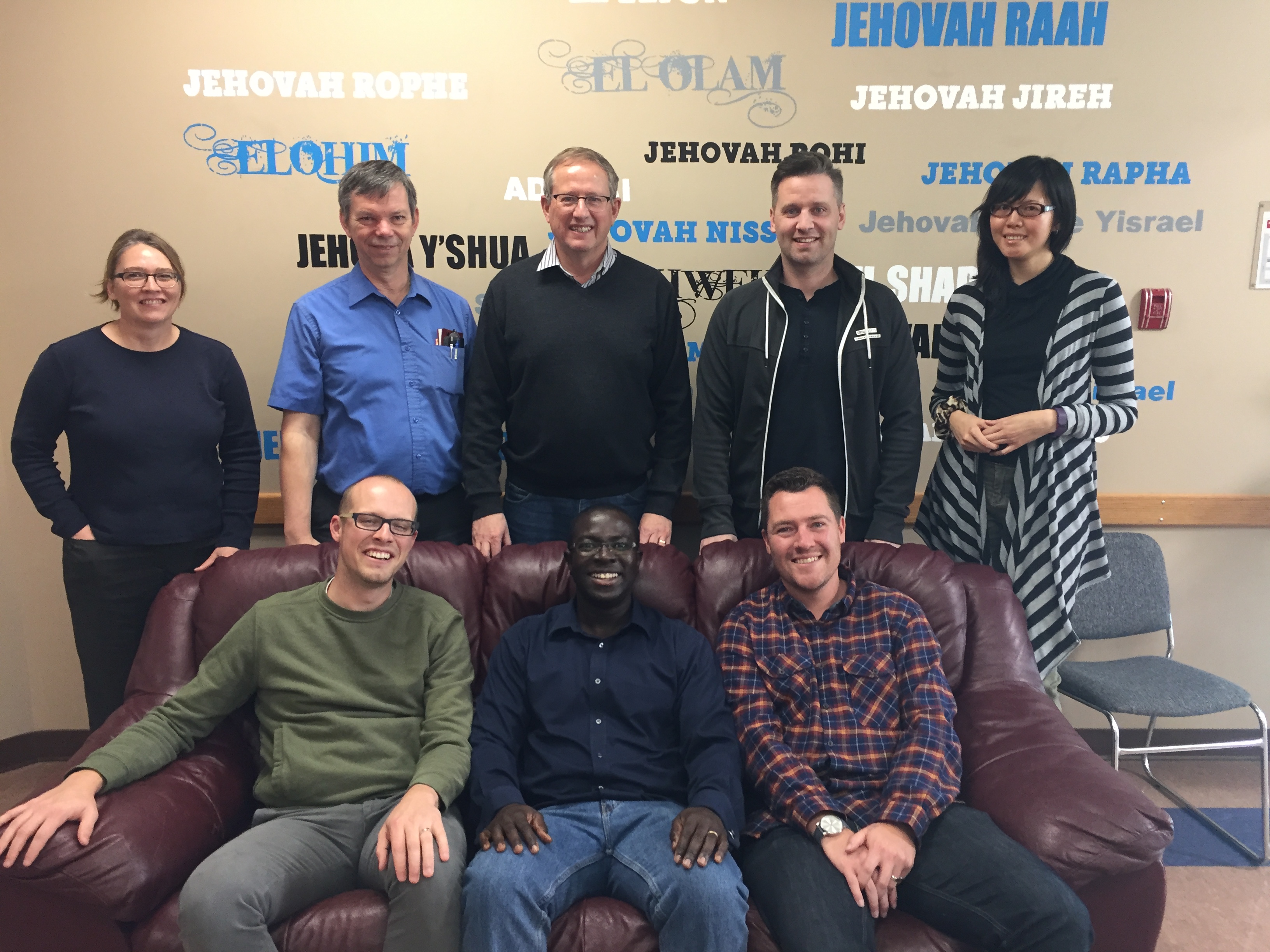I Stand Trial Today.
“Now I am on trial because of my hope in the fulfillment of God’s promise made to our ancestors.” ~Paul the Apostle, A.D. 62
Although the official book of the story of God has been ‘closed’ with the canonized 66 books of the Bible, God is still writing his story every day in and through our lives.
Today, November 28, 2018, I will be defending myself against three criminal charges leveled against me by one James Simon of Montreal: assault, assault with a weapon and attempting to steal his iPad. One day, not long after this trial is over and I am vindicated, God-willing, I shall tell the full story publicly. Suffice it to say I was officially served notice in September 2017 regarding a parking incident involving the two of us in May 2017 in the course of my duty as an Associate of the Christian Medical and Dental Society (CMDS). Up until last year, for about seven years I had been mentoring medical students at McGill University. Fortunately, I had two of my medical students present at the time of the alleged incident who are willing witnesses in court today.
I have asked myself several times why God would allow such a wicked triple venom to be spewed at me and how the Montreal police and Quebec judicial system could even allow these frivolous accusations to travel this far but be that as it may I have taken great encouragement from the life of one of my top three historical mentors in the Bible: Apostle Paul.
If you should ask me, it is no accident that a day before my trial I found myself in Rome of all places (for the first time in my life). While on a five-hour transit at the Leonardo da Vinci airport en route back home to Canada I felt led to take a pilgrimage to the Mamertine prison area (Carcere Mamertino in Italian) where Paul was kept in AD 64, under house arrest for two years, awaiting trial by Emperor Nero (Acts 28:30). It was from there he penned the amazing book of Ephesians. I arrived in the frigid hours of the morning and spent quality time between 6 and 7am supplicating and interceding with tears mixed with rain to Paul’s God that my trial too will be for his praise, glory and fame.
False accusation against God-followers is an old tool of Satan the adversary and “accuser of the brethren”—from Joseph through Jeremiah to Jesus. Speaking of that and Rome, that particular Mamertine prison (carcer) has held several Christians, including Apostle Peter, especially in the time of Emperor Nero who even accused Christians as being behind the ravaging July 19, AD 64 fires of Rome. Oh, the other famous accusation was that Roman Christians hated humanity (popular till date especially among humanist-secularists).
My trial was originally slated for June 2018 but had to be postponed because the police officer who took my accuser’s statement and processed the case (without ever taking my side of the story!) went on vacation! During that time in June when my lawyer pointed out the baseless nature of the accusations to the Crown prosecutor who then sought the consent of my accuser to withdraw the case the latter said “no way,” and that I had still been coming around (during a time I was away in Ghana with my family for eight months!). He supposedly added that I was dangerous and ought to “be put away!” Ha!
Back to Paul and his inspiration regarding trials. Interestingly, only two weeks ago I was in Israel (again, for the first time in my life). When I had the opportunity of a customized one-on-one tour of selected places, one of the sites my gifted Jews for Jesus tour guide, Dalia, felt strongly we should visit (and at that time the name meant nothing to me) was Caesarea Maritima. Dalia must’ve been led by God’s Spirit unbeknownst to her. I was familiar with the other Caesarea, Caesarea Philippi, where Peter had made his famous divinely-inspired confession about Jesus: “You are the Messiah, the Son of the living God.” But Caesarea Maritima, that strategic port Herod the Great built along the Mediterranean, did not ring a bell. Yet it was here that I got to walk on the very grounds of the room that Apostle Paul was kept in as prisoner two years earlier (AD 62) than the Roman incarceration while being tried by Festus and Felix (Acts 24-26). Was my pilgrimage to Caesaria Maritima an accident or a ‘God-incidence’?
God is still writing his story in the lives of his people and his earlier recorded stories are for our inspiration and instruction. Incidentally, when St. Paul wrote to the very Romans many years prior that was his exact encouragement: “For everything that was written in the past was written to teach us, so that through the endurance taught in the Scriptures and the encouragement they provide we might have hope” (Romans 15:4, NIV).
Today, I too will be standing trial, comforted by the words of Apostle Paul that, “We are hard pressed on every side, but not crushed; perplexed, but not in despair; persecuted, but not abandoned; struck down, but not destroyed. We always carry around in our body the death of Jesus, so that the life of Jesus may also be revealed in our body” (2 Corinthians 4:8-10, NIV). I am counting on Jesus, who not only knows how it feels like to be falsely accused and unfairly tried but made his followers, like me, a solemn promise: “On my account you will be brought before governors and kings as witnesses to them and to the Gentiles. But when they arrest you, do not worry about what to say or how to say it. At that time you will be given what to say, for it will not be you speaking, but the Spirit of your Father speaking through you” (Matthew 10:18-20, NIV).
In a court case I call “a bizarre cocktail of mental health, racism and spiritual warfare” I trust truth will prevail, justice will be served and ultimately God will be glorified. God is still writing his story in our lives every day, even today. And He has the last word. Be encouraged.
NATIONAL CATHEDRAL: Vulgar or Virtuous Venture?
My Unwholly Holy Initial Thoughts, Honest-to-God
‘To build or not to build?’ is more often than not a rather profound, mind-wracking, heart-churning, soul-searching question, be it for a young couple or a growing congregation, a thriving corporation or even an emerging country!
My initial reaction to the notion of building a national cathedral in Accra, Ghana was not that of excitement and welcome. No. It was a rolling of the eyes, a cynical “yeah right! another opportunity for sleek politicians to line their pockets with 10% kickbacks and oil their party’s campaign wheels.” The other thought was, “Really? In a country that is struggling to procure beds for the sick and school buildings for the young or even prevent needless deaths every year from perennial floods? Can this be a priority with our degree of poverty?”
Apart from the economic prudence and social justice angles, from a purely missiological lens I shuddered we may be treading the undesirable path of so-called ‘post-Christian’ Europe, ending up 100 years from now with beautiful but empty cathedrals only good for tourism or sale to condo developers, effigies of a dying spirituality.
Oh yeah, and there is the splendid basilica in Yamoussoukro next door, Notre Dame de la Paix, which I got to visit a couple of times during my one-year sojourn in Cote d’Ivoire as a United Nations peacekeeper. The grandeur of the edifice from afar and the sense of awe it evokes in the soul upon standing on those holy grounds left me schizophrenic how a nation with such a holy habitation would be at war or why this multi-million dollar erection is queerly perched in the middle of poverty and even backwardness. Apparently the papacy—John Paul II was the pope at the time—before agreeing to the 1990 commissioning of this expensive edifice in the midst of pauperism insisted that he would do this only on condition that a hospital be built in the vicinity of the cathedral (sort of to ease his conscience, I guess). As far as I know, then-president Félix Houphouët-Boigny acquiesced and that hospital was commissioned at that time but is still yet to be built, 28 years later!
That being said, my willingness to travel all the way from Montreal to Accra, at my own expense, to be part of a discourse organized by the National Cathedral Secretariat proved to me that my mind wasn’t completely closed to the idea. After taking pains to learn a wee bit more about the proposed project and spending some time last weekend in the United States with a former national head of a historical and significant Ghanaian church denomination, I am now almost won over. May I share why? (these are not his thoughts but mine)
1. More Than a Building
Part of my unease about hardware with no software, the case of Western civilization’s empty cathedrals but denying the power thereof, has been eased with the knowledge that this venture is a two-edged sword of both Cathedral-as-Infrastructure and Cathedral-as-Convenor. Those who say faith should have no place in the public space are ill-informed at best and naïve at worst. This is true and matters even in the West where the so-called post-Christian era has brought in its wake such a keen thrust towards secularism let alone in Africa where religion is life and life is religion, period. You can find loads of books and scholarly articles written about how culture and religion are inseparable in the African paradigm. The Cathedral seeks to facilitate conversations and critical public debates. There is one in the works, which I plan to attend, that has even garnered international interest. We have a lot to talk about, with so much faith and so little integrity, or so many churches but so much filth and poverty in Ghana. Then to act.
In this vein, I congratulate the National Cathedral Secretariat for not falling prey to what Jim Collins calls, “‘the tyranny of the ‘or’” but fully riding on the wave of “the genius of the ‘and.’” Not Cathedral-as-Infrastructure or Cathedral-as-Convenor but both/and. For my worry that we may be building concrete structures rather than investing in the actual making disciples of Jesus Christ, I say to myself, it isn’t either/or; it can, and indeed should, be both/and. For Christians who say our body is the temple of God so we need no other such national cathedral, may I again submit, it’s not either/or but both/and.
2. Just the Land
One of the most important things I have learnt about this project is that the government is only providing the land. None of the money for the proposed cathedral will be taxpayers’ money. The Christians who believe this will be honouring to their God are expected to put their money where their mouth is. That eases my concerns a bit, as a sort of secular state (that’s a fallacy; plus we should perhaps revise our stance on annually facilitating pilgrimages to Mecca on taxpayers’ money).
There are enough Christians and more than enough Christian cash to put up this building. Between a mere two denominations, say the Church of Pentecost (have you seen their conference centre at Kasoa?) and Lighthouse Chapel alone (go and see their Anakazo edifice in my hometown, Mampong-Akuapem), this is easy-peasy.It will be great to see the unity of the body of Christ in Ghana around this one national vision and mission.
As a budding missiologist, such a monument of the Christian faith is of much interest to me as a symbol of Christianity on a continent which only 100 years ago was considered ‘savage,’ ‘dark’, ‘primitive’ and ‘heathen.’ This year, 2018, is the first time in the history of the world, actually, that Africa has been billed as the continent with the most Christians in the world! Perhaps a national cathedral in Ghana, a major player in quantity and quality of Christianity on the continent, may be a worthy monument to mark this new era, to the glory of the God of Africa too.
3. Priorities and Prime Time
It seems like the only good time to build a national cathedral is after there is no poor person in Ghana, a perfect doctor-patient ratio, Malaria has been eradicated, everyone has a job or is in school… in other words after all our problems are solved. In that case, there will never be a good time to build a national cathedral then; not even a house of parliament or a national sports stadium.
The people of Israel, in the prophet Haggai’s day, kept saying “The time has not yet come to rebuild the Lord’s house.” God was upset and queried: “Why are you living in luxurious houses while my house lies in ruins?” In this case, there isn’t even a national cathedral yet, in the first place, but many of us have two, three or more real estate properties. Now, this is what the LORD Almighty’s exhortation: “Give careful thought to your ways.”
This issue can really be a chicken-or-egg-which-comes-first one. Do we prosper first and then honour God with a national cathedral or do we honour God with one first and prosperity ensues. In the context of Haggai, God has no doubt which comes first: “You expected much, but see, it turned out to be little. What you brought home, I blew away. Why?” declares the Lord Almighty. “Because of my house, which remains a ruin, while each of you is busy with your own house.”I will suggest you read the whole chapter here.
We may be saying that when all is well with us we will build a national cathedral for God’s glory; he might be saying, until you build me a national cathedral for my pleasure, honour and glory nil will be well with you.
4. Poverty as an Excuse
Smack in line with the above argument against the national cathedral is the argument about poverty in Ghana. Poverty around is not an excuse for not giving God our best. That is the whole concept of the widow’s mite. That being said, we must put on record that nobody has done more work in alleviating poverty, building hospitals and schools like the Church (Body of Christ) in Ghana. The Church has done enough for society to be worthy of a single ecumenical cathedral at her own cost! Aaba! Even then, this is not just a monument but a practical, functioning construction for the use of the State!
It will be interesting to research how much the Church has contributed against how much even government itself has done in bringing dignity to the lives of Ghanaians. If I may be permitted to be so crass I would dare say that perhaps the Church deserves a national cathedral even more than the government deserves a Jubilee House! Can the Church in Ghana do more? Sure! But even then the Body of Christ in this country has already done more than enough to bless Ghanaians of faith or no faith with education and healthcare, peace and prosperity, civics and commerce, ideas and industry, to deserve one national, non-denominational, inter-denominational edifice to the glory of this God of theirs!
Read some history! It is because of the Church that our local languages like Twi and Ga are written today. The first seeds of cocoa, Ghana’s export lifeline, were brought into the country by the Church; not Tetteh-Quarshie. Even our very independence from colonial masters was to a significant degree catalyzed by the work of the Church. The erudite Kwame Bediako asserts that “a number of educated Christians who had a clear self-consciousness as Africans and Christians and who were alive to their intellectual responsibility to their society” was “as a result of the impact of missionary Christianity on our people.”*
There was poverty in Ghana when we built Parliament House and the National Theatre and the Accra International Conference Centre and Jubilee House. “The poor you will always have with you.” We will come back to who said that and in what context shortly. That is not to say we be cursory or even fatalistic about poverty in our developing country and not do much about it; what is meant is that if we’re going to use poverty in society as a barometer, we will never build anything celebratory or symbolic except hospitals, schools, roads, prisons and such.
5. When Extravagant Worship is OK
Also related to the above is the fact that many shouting, “this is extravagant, oh so unnecessary when we have the poor,” actually don’t care a hoot about the poor! Ghana’s woes stem from that same educated middle and upper class. They remind me of Jesus’ treasurer, Judas.
If anybody loved and cared for the widow, orphan and poor it was Jesus. Yet on this one occasion when a woman with a past decided to pour her expensive jar of perfume on Jesus, he did not stop her. Everyone else thought this was a waste or rather extravagant at best (it was worth a whole year’s salary!) but Jesus thought it was the coolest thing ever—whole-hearted worship, giving God one’s very best.
The ‘everyone’ included Judas Iscariot, who was audacious enough to open his big mouth to say this perfume could’ve been sold and the proceeds given to the poor. He said that because he was a thief and wanted to help himself to additional cash in the kitty, yes, but more importantly Jesus made it clear that there is a place for pure-motived, no holds barred, deep-felt extravagant worship even in the midst of poverty. It was in that context that Jesus shockingly revealed that “the poor you will always have with you.” After investing the equivalent of all the cathedral project money into poverty alleviation programmes as church and government have done for decades, we shall still have poor people in our midst.
6. In the Hearts of Kings
Leaders like to build—figuratively and literally, people and things, systems and structures. I have heard “The king’s heart is like a stream of water directed by the LORD; he guides it wherever he pleases” quoted in untoward circumstances when Christ followers want to see a heart-change of sorts of someone in power regarding some policy and such. But if the Christian God does direct the hearts of leaders of nations, could it be that it is he who has put this desire in the heart of the Ghanaian president? That desire to build for God was put in world leaders like Darius, Cyrus, Nehemiah, Solomon… dare I say Houphouët-Boigny? Could it be that this desire has been implanted into the heart of Ghana’s President by God himself?
7. Might Not Be the One or the Time
Inasmuch as I just spoke to the notion that a leader’s desire to do something great for God is a fact of life and of history it isn’t always acceptable to God because it might not be for them in particular to do and/or the timing may not be right in God’s scheme of things.
The great Jewish king David loved God and once said to himself, “Here I am, living in a house of cedar, while the ark of God remains in a tent.” A prophet called Nathan replied to the king, “Whatever you have in mind, go ahead and do it, for the Lord is with you.” That night, the LORD appears to Nathan and asks him to go back to David and disappoint him. Fascinating! Check out the full story here.
A national cathedral for Ghana may be a good thing, but depending on whether it is God’s will, especially vis-à-vis his timing, it may not be a pleasing and perfect thing in his sight. David rescinded; but provided all the resources for the one appointed and anointed to build that national cathedral to do so at the future perfect time—his heir and son, Solomon.
A Holier Conclusion
For Christians, the question to ask is if such a national cathedral in Ghana will bring glory to God at this time, be a blessing to people at all times and in any way deal another punch to evil to make the righteousness, love, joy, peace, and power of God’s kingdom more established on earth as it is for all time and all eternity in heaven. Will other nations travel from near and far to come and see this edifice and leave breathless in wonder—like the Queen of Sheba when he visited Solomon and his national citadel—that the God of Ghana is great and most greatly to be praised? At the same time, will the beauty and glory of our everyday lives (not just when we’re suited up for church but at Makola and the government ministries) match the magnificence of this national cathedral? As for where to site it as well as the maintenance culture and costs, that is another conversation.
Personally, I would like to give this national cathedral a chance. I am very close to echoing the response of city officials to Nehemiah’s national building proposal, “The God of heaven, he will prosper us; therefore we his servants will arise and build.”
*Bediako, Kwame. 2014. Christianity in Africa: The renewal of a Non-Western Religion. Akropong-Akuapem. Regnum Africa.
Caught in a Cross-Fire of Love
I seldom share my personal written prayers in public. But as the LORD mercifully answers this one may it be your reality too.
Dear Love,
So where did I get the idea that I am somehow an originator of love when you are not only the pioneer, picture and perfector of love, you are Love itself; or rather should I say, Himself?
Today, I am happy to be caught in the cross-fire of the “love that flows between the Father and Son, enfolded in [your love], sharing [your] passionate love for the world” (Seamands 2005, 53). As I read about Jack frost (53-56) I wondered if the author had heard about me and retold my personal story with that pseudonym. You know I am a recovering workaholic, performance-driven, results-oriented, doing-more-than-being hard taskmaster, but you have been transforming me by the renewing of my mind since I began Fuller over a year ago. Thank you.
And now if indeed Jesus is sending me as you sent him (John 20:21), o then may I feel afresh “the profound awareness of the Father’s affectionate love [as] the foundation of [my] ministry” too (63). May my sending (achievement) be out of a sense of being (acceptance), well-being (sustenance) and being-ness (status) (63-64).
O how I often slip away from this foundation and time and again become a ‘loving worker’ instead of a ‘working lover’ (65). May I truly profoundly and experientially know your heart for me before having your heart for the nations (66-67).
What a stark reminder, dear Lover and Lord, that who I am is more important than what I do not just because the latter flows from the former but that my identity as a son is proto, prime and permanent. If even I did nothing, I will always still be your beloved son in whom you are well-pleased. Profound. Wow!
May you remove every known and unknown barrier to your love for me, may I feel your passionate phileo and even eros love for me—not just agape. I want to feel the fire of your love afresh in my soul.
So! back to the beginning. I am happy to be caught in the cross-fire of that divine love which “is a burning fire; in all its intensity and infinity…has but one object and but one joy, and that is the only-begotten Son” (72).
Thank you for including me in “the circle of that fiery love” (73). May I always be content to stay there—to just be.
Your co-lover and co-loved,
Yaw
Work cited
Seamands, Stephen. 2005. Ministry in the Image of God: The Trinitarian Shape of Christian Service. Downers Grove, IL: InterVarsity Press.
You don’t know You if you don’t know God—and vice versa.
With all due respect, we are fooling ourselves if we think we can know ourselves without knowing God or know God without knowing ourselves. You can’t have one without the other. Here’s why.
“MAN, KNOW THYSELF”
We shall not even begin to delve into the convoluted Egyptian and Greek history that tries to explain the origins of the poignant phrase, “know thyself.” Suffice it to say that in leader development, many practitioners like me are in a hurry to get to exciting things like vision and mission and to teach skills like communication, team-building etc. but when we skip the essential task of helping people to first discover more of themselves, pay attention to themselves, there is imminent danger on an already treacherous leadership journey. “Man, know thyself,” said Socrates and apparently many other ancient Greek sages.
There are many reasons why self-awareness is important, like discovering the strengths and weaknesses of one’s personality (DISC, Enneagram or Myers Briggs as examples), uncovering how one’s ancestry affects their present attitudes, emotions and actions (using a genogram, for example), unveiling blind spots, discovering one’s giftedness (eg. using a StrengthsFinder assessment), exploring one’s cultural values (basic values survey) etc.
All that being said, it may astound you how knowing ourselves and knowing God are inextricably linked.
SIAMESE TWINS
I don’t know if using conjoint twins is the best analogy for illustrating this but Scripture, church history, current research and umpteen experiential anecdotes have proven beyond doubt that “a heart to know God more intimately requires an openness to discover oneself more truthfully” (Reese 2012, 57) and vice versa; also, that “true knowledge in the life of faith is always a “double knowledge.” We cannot know ourselves without knowing God or know God without knowing ourselves.
ANCIENT WORDS
Just check out what a few significant voices from the past have said about this double knowledge for nearly 2,000 years:
- Augustine (354-430): “Grant, Lord that I may know myself that I may know thee.”
- Bernard of Clairvaux (1090-1153): “Know yourself and you will have a wholesome fear of God. Know God and you will also love God. You must avoid both types of ignorance, because without fear and love, salvation is not possible. Without knowledge of self, we have no knowledge of God.”
- Julian of Norwich (c. 1342-c. 1416): “For our soul is so deeply grounded in God and so endlessly treasured that we cannot come to knowledge of it, until we first have knowledge of God, who is the Creator to whom it is united. …And all of this notwithstanding, we can never come to the full knowledge of God until we first clearly know our own soul.”
- Thomas à Kempis (c. 1380-1471): “a humble self-knowledge is a surer way to God than a search after deep learning.”
- John Calvin (1509-1564): “Our wisdom, in so far as it ought to be deemed true and solid wisdom, consists almost entirely of two parts: the knowledge of God and the knowledge of ourselves… The knowledge of God and the knowledge of ourselves are bound together by a mutual tie.”
- Blaise Pascal (1623-1622): “To know God and yet know nothing of our own wretched state breeds pride; to realize our misery and know nothing of God is mere despair; but if we come to the knowledge of Jesus Christ we find our true equilibrium, for there we find both human misery and God.”
PAY DOUBLE
No wonder the apostle Paul said to his mentee “pay close attention to yourself.” Of late I have staged a ‘rebellion’ against corporate leadership and the self-help/motivational industry because of the wanton decoupling of ‘religious life’ from reality. My frustration with church leadership also is when “these answers we know from Scripture” and “the questions we have in our life” are not really matching up well (Reese 2012, 60) and all this theology doesn’t seem to go anywhere or land in reality.
The most liberating thing for me in the final chapter of David G. Benner’s The Gift of Being Yourself is that “genuine Christ-following will always make us more, not less, human” (88). And I adore the Lord Jesus Christ for showing me the way: “By becoming fully human, Jesus leads us to the fulfillment of our humanity. By being fully God, he leads us to God” (88). Hallelujah!
As Benner puts it, “The anthropological question (Who am I?) and the theological question (Who is God?) are fundamentally inseparable” (83). I have become very, very, very, very wary of a multi-billion dollar self-help/motivational industry that has no place for God. Very. Or a musty theology that is not grounded in the reality of being human. Double knowledge, my friends. We’ve got to pay attention, twice.
Works Cited
Reese, Randy D., and Robert Loane. 2012. Deep Mentoring: Guiding Others on Their Leadership Journey. Downers Grove, IL: InterVarsity Press.
Benner David G. 2015. The Gift of Being Yourself. Downers Grove, IL: InterVarsity Press.
A Daniel Dare for the New Year
With another new year comes another fresh challenge of fasting and prayer for 21 days—just like Daniel did.
HARD TO BEAT
Make no mistake. Every excuse you may have not to fast and pray, Daniel had same and more. He was super smart, highly intellectual and well-trained—from Alchemy to Zoology (Daniel 1). He aced the national test to serve the king.
He was super gifted with insight to interpret dreams, mysteries and hard puzzles that baffled the most sophisticated magicians, enchanters, astrologers and diviners of his time—in fact, he was once appointed chief of them all in King Nebuchadnezzar’s era (Daniel 5).
Daniel was super busy—he was one of three senior ministers overseeing 120 regional ministers of the Babylonian kingdom—he wasn’t slack. Indeed, Daniel so distinguished himself among the ministers and senior ministers by his exceptional qualities that the king planned to set him over the entire kingdom as prime minister (Daniel 6).
He was super principled and ethical—his diet, motives, honesty, disciplines, integrity, convictions… He was a man of noble character. He served several successive kings—he outlasted them—even as an immigrant in high political office.
Super young, super good-looking, super liked and all the above, he still found the need to fast for 21 days, seeking understanding of an issue that he wanted to unravel. At that time I, Daniel, mourned for three weeks. I ate no choice food; no meat or wine touched my lips; and I used no lotions at all until the three weeks were over. (Daniel 10:2-3)
If you are satisfied with being super by earthly standards, then by all means forget about the pain of fasting and the work of prayer. But if you want to see the supernatural intervening in your earthly matters, then welcome to the school of fasting and prayer.
DO THE MATH
Every new year is a mystery, like Daniel’s, waiting to be unravelled. To take 21 days seeking audience with the Author, Executor and Perfector of all the 365 days laden with prospects and dangers is only a 6% investment of your year but worth 100% of the effort.
Since 2007 a number of us have done this math and figured an exciting time of seeking the Lord in 21 Fasting Days of Prayer, Purpose and Planning at the start of each year is so worth it. See my blog last year for some of the most important reasons why I personally do this year after year for over 10 years now!
Please plan to join us as we seek the Lord in fasting and prayer from January 2nd to 22nd. We will plan to meet together daily for corporate prayer times in person or via video call (Zoom) from 5 pm to 6 pm local time (wherever you are in the world) and 5pm to 6pm ET in North America in particular. You will find the meeting link and schedule of daily prayer topics below.
CHOOSE YOUR FAST
In fasting, we commit to denying ourselves of food, drink or other comforts to more fully focus on prayer and fellowship with God. There are many types of fasts. There are complete fasts where you deny yourself all food or partial fasts where you forego certain types of food. Food is anything with calories 🙂 so does not include water (which has zero calories). It is actually a healthy practice to keep hydrated since the body is 60% water. A dry fast (no water) isn’t recommended beyond three days. Usually, when people set out to fast for an extended time—like the 21 days in the Daniel Fast—they will choose to do a partial fast.
The Daniel diet during this fast (like he did) is mainly vegetables and denying yourself meat, drinks and other choice foods. Basically, nothing fancy. Some still have three meals a day but nothing fancy (as described above) while others go the whole day denying themselves breakfast and lunch and eating only in the evenings.
Here are three suggestions of different partial fasts you could choose this January:
1) Full day fast Type 1: Fast from breakfast and lunch and eat a normal supper in the evening for the 21 days.
2) Full day fast Type 2: Fast from breakfast and lunch and eat a Daniel fast supper in the evening for the 21 days.
3) Fast Type 3: Eat three Daniel Fast meals each day for 21 days.
Please prayerfully consider joining us for this exciting 21 fasting days of Prayer, Purpose and Planning for 2018!
LAND THE DEAL
“Do not be afraid…Since the first day that you set your mind to gain understanding and to humble yourself before your God, your words were heard, and I have come in response to them. But the prince of the Persian kingdom resisted me twenty-one days…Now I have come to explain to you what will happen to your people in the future, for the vision concerns a time yet to come.” (Daniel 10:12-14)
It is the same dude, Daniel, who was unequivocal in stating, “…the people who do know their God shall be strong, and do exploits” (Daniel 11:32b). Now you know. HAPPY NEW YEAR!
TECHNICAL INFO
Schedule: January 2-22 daily topics here
Zoom Link: Join from PC, Mac, Linux, iOS or Android
Or Telephone: US: +1 646 876 9923 or +1 669 900 6833 (Meeting ID: 248 246 747)
International numbers available: https://zoom.us/zoomconference?m=BWpwOmbBqIO9McEisO8aYDJSSz5Wzav_
CONFESSIONS OF THE CALLED (#5): Convocation at the Table of Vocation
To be a stable entity one needs to get rid of a one-track mind that calling is just one thing and embrace at least four kinds of vocations, just like the legs of a four-legged table.
It was not until my university days that I clearly heard and understood that I had a unique and specific God-given calling in this life. The excitement of that threw me into an extreme mode where I sought that one and only specific vocation my Creator had for my life. If you’ve been following this Confessions of the Called series, you will know that a lot of my one-track perspective has changed. I now see at least four kinds of callings each of us have, and like the legs of a four-legged table, you just might topple without any of the legs:
1. Human calling.
Our first call is to be human beings (Benner 2015, 87). Personally, I find that I have been so much in a hurry to live out the next call below, the Christian call, that many times I have neither accepted my own humanity let alone that of another. I’m often in a hurry to deal with myself and people as Christian/non-Christian than first of all, as simply human. This is where you can love someone, even an enemy, simply because they too are human—made in God’s image.
2. Primary/General calling.
You may call this the Christian calling. This is basically the primary vocation of having been called by God himself in love to love God and love our neighbour as Christ-followers. The first few blogs in this ‘Confessions of the Called’ series have all been about how foundational and essential this is, before we attempt our secondary call.
3. Secondary/Specific calling.
Based on how God has uniquely wired us with gifts, passions, capacities, experiences, circumstances etc. we can discern through observation, prayer and counsel what specific vocation we may have, since no one else on the planet has our unique fingerprint.
Let me say here, another confession, that unlike the one-track-purpose-for-life that I used to think everyone had, there may be some of us who are called to a patchwork of callings. Perhaps no one captures it better than this English professor at Calvin College, Debra Rienstra (2005, 221-22):
“Some people’s passions are obvious, and God leads them through those passions into a single path of service. Mother Teresa, for example, or the lifelong kindergarten teacher, or the musician who offers his skillful playing every day for God’s glory and other people’s joy. Others, like me, have less obvious passions: what gives the energy develops over time or remains partially hidden or blooms suddenly in response to new situations. As a result such people offer an assortment of odds and ends as service: a regular job done with integrity, some volunteer work, a career decision that seeks service over money and prestige, kindness to neighbors, maybe a late-life passion for going on mission trips or teaching teenagers appliance repair. Their lives may not have the clean simplicity of vocation, but at the center of everything they do is a deep love for God—and that is everyone’s true vocation.
“I’ve learned that God treasures the lives made of a single piece of cloth, cut in the shape of service. But God also values the lives that look more like a bag of fabric scraps, some big pieces, some tiny pieces, different colors and weaves. At each stage in my life, with each piece of it, I try to ask God, “How can I offer this to you?” I have to trust that if I offer all the odds and ends of my life, God will stitch together the pieces in some lovely pattern and receive it as my gift.”
4. Immediate calling
This last one I gleaned from Gordon T. Smith’s Courage and Calling: Embracing Your God-given Potential. It brought such a sense of peace to me as I tend to be very futuristic and ‘big dreamy’ in my approach to life thus find little, urgent things like changing a diaper or taking my wife grocery shopping quite interrupting and irritating. Immediate calling means God invites us to be responsible with the present demands and tasks of our lives (Smith 1999, 10).
“And we know that God causes everything to work together for the good of those who love God and are called according to his purpose for them”—human, primary, specific, immediate callings. So come to the table just as you are, right where you are, right now. Relax. God’s got this.
Works Cited
Benner, David G. 2015. The Gift of Being Yourself: The Sacred Call to Self-Discovery. Downer’s Grove, IL: InterVarsity Press.
Rienstra, Debra. 2005. So Much More: An Invitation to Christian Spirituality. San Francisco, CA: Jossey-Bass.
Smith, Gordon T. 1999. Courage and Calling: Embracing Your God-Given Potential. Downer’s Grove, IL: InterVarsity Press.
What’s in a name?
Sometimes one can’t help but wonder whether names of people in history were given to them after they lived the way they did (to capture the essence of their lives) or really before. Naming is important; names are prophetic.
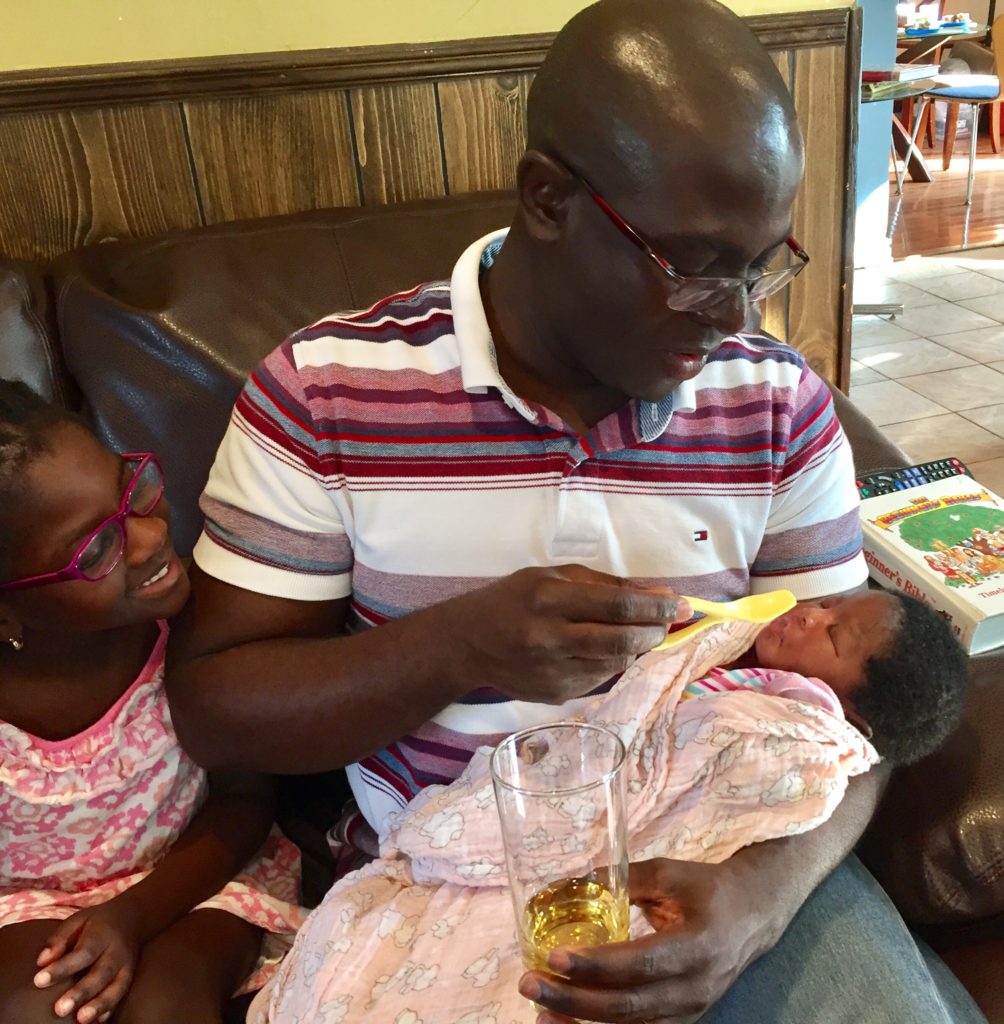
Performing an Akan tradition where you symbolically ask the child to learn to distinguish between ‘water’ and ‘juice,’ ‘good and evil,’ ‘black and white,’ right and wrong.’
Nana Ahomka
Nana Ahomka Asamoabea Perbi
And a voice came from heaven: “You are my Son, whom I love; with you I am well pleased.” (Mark 1:11)
And Jesus grew in wisdom and stature, and in favour with God and man. (Luke 2:52)
 I woke up early morning on Monday, 6th February with ‘Adenyinaamu’ on his heart; yes, that this child we were carrying will be holistic and have “God in my everything,” “God over everything.”
I woke up early morning on Monday, 6th February with ‘Adenyinaamu’ on his heart; yes, that this child we were carrying will be holistic and have “God in my everything,” “God over everything.”
Considering the challenge of name pronunciation in the global context we kept the idea of holistic, wholesome, bringing God pleasure in every area of her life and gave her the simpler version Ahomka, Nana Ahomka–God’s pleasure (delight). This emphasizes both our prayer that she will live a wholesome, holistic life, all aspects pleasing to the LORD, as well as that she will bring delight to us and everyone she ever encounters.
The middle name, Asamoabea, is that of my beloved paternal grandmother who was quite the prayer warrior and story-teller! And boy could she dance with delight to everyone’s delight!
Our prayer:
Let love and faithfulness never leave you; bind them around your neck, write them on the tablet of your heart. So you will find favour and good repute In the sight of God and man. Trust in the LORD with all your heart and lean not on your own understanding; in all your ways submit to him, and he will make your paths straight. (Proverbs 3:3-6)
From ‘Fantastic Four’ to ‘Fabulous Five’

Our children with their prophetic names (from left to right)…
- Nana Agyina (God’s Purpose) | Boy, 9 years
- Nana Adwenepa (God’s Paradigms) | Boy, 5 years
- Nana Ahotew (God’s Purity) | Girl, 2 years
- Nana Ashede (God’s Principles) | Girl, 7 years
- Nana Ahomka (God’s Pleasure) | Girl, 0 years (or 1 year, the Chinese way 🙂
Emotionally Constipated
In medical school this wasn’t one of the diagnoses I was taught I could make but on the other side of the doctor’s desk, this may be an even more dire diagnosis than a clogged gut.
MAINLY MEN; BUT NOT ONLY
Last Sunday, in a suburban church in Montreal, this was the summary of the middle-aged chap who shared his life-long struggle of dealing with his past: “I don’t do emotions.” Me too! Well, no more.
In many world cultures, that is the manly thing to do; it is macho. Some women try it too 🙂 In fact, in my own language, there is a saying that, “Obarima nnsu;” to wit, real men don’t cry. Even as a little boy growing up in Scripture Union circles in Accra, I always knew there was something wrong with that statement because I considered no one more manly that Jesus Christ yet he wept. Ever since then, I haven’t had a problem with weeping (you probably have seen me weep!) but errm… not done so well with a whole range of other emotions.
FACE, FIGHT OR FLIGHT?
I still remember my rather unemotional response to one of my staff’s emotional appeal when he said, “I feel…” My immediate response was, “Good thing that it’s only a feeling; but what do you think?!…” I don’t need to tell you that conversation didn’t go very well after that.
The Lord has been particularly convicting me of my emotional immaturity since the beginning of this year. Prior to that, I was the kind of leader Ruth Haley Barton would describe in Parker Palmer’s words as having risen to leadership based on “extroversion, which means they have a tendency to ignore what is going on inside themselves. These leaders rise to power by operating very competently and effectively in the external world, sometimes at the cost of internal awareness… but the link between leadership and spirituality calls us to reexamine that denial of the inner life.” (Barton 2012, 44, emphasis mine).
In fact, I might never have picked up a book like Peter Scazzero’s The Emotionally Healthy Leader because hitherto the word ‘emotional(ly)’ anywhere put me off. But for Dallas Willard and Scazzero, I had never thought of my emotional life as specifically needing to be discipled! I certainly did not have the theological, mental or practical framework for that!
Scazzero astounded me and totally destroyed my perception of what spiritual formation consists of when he emphatically stated, “it is not possible to be spiritually mature while remaining emotionally immature!” (Scazzero 2015, 17). Gordon Smith drove the dagger deeper into my heart when he confirmed that “what is happening to us emotionally is not secondary to our spiritual experience, but may actually be—pun intended—the heart of the matter” (Smith 2014, 27).
And whole squadrons of the ancients agree, that “few things are so crucial to our growth in faith, hope and love as our capacity to be alert to the emotional contours of our lives” (28). Smith then adds another dimension, that not only are my emotions an area to be discipled for sure but they are also indicative, a dashboard sign, in the sense that “the depth of our hearts reflects the depth of our emotional lives; nothing so captures the inner recesses of our beings as what is happening to us emotionally” (28). In fact, St. Ingatius exhorts that we check for feelings of consolation and desolation in the Examen.
For all those as emotionally constipated as I used to be, we need to decide now: are we going to face our emotions, fight them or flee?
DENIAL, DISTORTION & DISENGAGEMENT
I could give myriad reasons (in addition to the couple above) why being emotionally aware and emotionally expressive in a healthy way is non-negotiable in life and leadership but just take a moment to consider why Dan Allender and Tremper Longman, in The Cry of the Soul, find this paramount:
“Ignoring our emotions is turning our back on reality; listening to our emotions ushers us into reality. And reality is where we meet God…. Emotions are the language of the soul. They are the cry that gives the heart a voice…. However, we often turn a deaf ear—through emotional denial, distortion, or disengagement. We strain out anything disturbing in order to gain tenuous control of our inner world. We are frightened and ashamed of what leaks into our consciousness. In neglecting our intense emotions, we are false to ourselves and lose a wonderful opportunity to know God. We forget that change comes through brutal honesty and vulnerability before God.”
THE DOCTOR’S DOCTOR
So where do we go from here? Personally, I have not only devoured Scazzero’s The Emotionally Healthy Leader but also led my entire ISMC national leadership team and still taking the fourteen country CEOs of The HuD Group through it chapter by chapter. At ISMC’s recent biennial national staff conference in Montreal, there was a daily ‘Emotionally Healthy’ segment (spirituality, relationship, leadership). In fact, the picture you see above was taken in May 2017, when Anyele and I had the privilege of joining the authors, Peter and Geri Scazzero, at their conference in New York (together with the CEO of The HuD Group Canada and his wife). I’m still learning and eagerly walking with a few others through Emotionally Healthy Spirituality over the next few months.
Having gleaned from Smith that “the genius of good [spiritual] direction is that we probe together, director and directee, and attend to the emotional wake that is left by the myriad of experiences we have had or are having” I have begun a search for a well-fitting spiritual director, apart from the amazing mentors, accountability partners, counselors and coaches I have in my life. And a good practice, encouraged by my wife, has been to “name my feelings,” because “what you name you can tame.”
How about you? Could you too be suffering from emotional constipation? What may God be calling you to do about it? Take a personal Emotional Healthy Spirituality assessment here. Don’t be afraid or ashamed to admit your state of emotional immaturity or bankruptcy, because hey, “God blesses those who are poor and realize their need for him, for the Kingdom of Heaven is theirs.”
Other Works Cited
Barton, Ruth Haley. 2012. Pursuing God’s Will Together. Downers Grove, IL: IVP.
Scazzero, Peter. 2014. Emotionally Healthy Spirituality Day by Day. Grand Rapids, MI: Zondervan.
Scazzero, Peter. 2015. The Emotionally Healthy Leader. Grand Rapids, MI: Zondervan.
Willard, Dallas, 2002. Renovation of the Heart: Putting on the Character of Christ. Colorado Springs, CO: NavPress.
Uncommon Sense or Nonsense? This Trinity Thing
On a recent flight from Halifax to Montreal, the Jehovah’s Witness in the seat next to mine couldn’t help but express near disgust at the concept of God as Trinity. “It just doesn’t make sense.” Wherever she is now, I hope she gets to read Johnson’s book. The author is spot on: it is true the Trinity is a mystery but it is not an absurdity!
The following is adapted from a Devotional Reading Report submitted as part of my Master of Arts in Global Leadership (MAGL) program at Fuller Theological Seminary. May this give you a good foretaste of Johnson’s small book with big impact. Grab it!
Johnson, Darrell W. 2002. Experiencing the Trinity. Vancouver, BC: Regent College Publishing.
Chapter One: Finding the Trinity
I began devotionally reading this book sympathizing with Thomas Jefferson as it seemed quite noble to follow the “simple Jesus” too (Johnson 2002, 13-14) until I realized that, like the early Christians who wrestled with this mystery, a true experience of God in his fullness, invariably leads one to the “complex trinity” (14, 32, 54). This made me understand even more deeply not only the title of the book, Experiencing the Trinity (emphasis mine), but also affirmed my conviction that our theologizing must emanate out of our experience, not just high “ivory tower think-tank” (18, 30) or armchair philosophizing.
Prior to reading Johnson, I had neither considered how the worship of Jesus would’ve been idolatry to monotheistic Jews (15, 30, 39) nor taken the time to observe that Jesus commands us to baptize disciples into the name (singular) of the three-fold God (16). How could I possibly not fall in love with the fact that God is one but God is not alone (22)? Profound! Even now I pause to join the heavenly chorus in adoration: Holy, Holy, Holy! (25)
Chapter Two: Understanding the Trinity
Such profundity, that “at the center of the universe is a relationship,” (37) a threefold community for which I was created and redeemed (37) and whose mission I am on—to bring in the rest of the party. Inasmuch as to the mortal mind this relationship may be “a riddle wrapped up inside a puzzle and buried in an enigma” (37) I truly appreciate Johnson not rubbishing the difficulty in trying to comprehend this mystery by affirming that “Yes, thinking about God as Trinity is hard work.” (38) What I found curious was that the early church “did not formulate the doctrine of the Trinity in order to resolve the mystery of God’s self-revelation, but rather to preserve that mystery” (40). O how I pray that my conviction will be as strong as theirs!
While umpteen analogies from nature try to and fail, to varying degrees, to capture the awesomeness of His majestic three-foldness, it is a stark reminder that the Trinity is not a natural phenomenon but supernatural (47). Dr. Roger Nicole’s diagram (41) has been the most helpful illustration that I have ever come across of both what the Trinity is and what it isn’t.
Chapter Three: Joining the Trinity
This chapter got me skipping like a lamb in my spirit, to recognize the most esteemed invitation I’ve ever received in my life: “God draws near to [me] in such a way as to draw [me] to himself within the circle of his knowing himself” (60). Wow! God’s invitation stuns me. First, that such a high and mighty one would open his heart and hands and stoop so low to literally invite me into his inner circle, rendering himself so vulnerable. But then secondly, it shames me to realize how not vulnerable I want to be towards him, let alone others not quite like me!
I love the ‘circle’ metaphor because a ring really has no beginning or end; it is eternal and entire—God eternally knowing and loving, worshipping and missioning. Not being a lover but a co-lover (62) with God of himself (64-67), of one another (67-68), and of the world (68-69) is a yoke I gladly embrace (66).
Stop and think for a moment: not only is God love, but “the mystery is that long before any human being came into the picture God was already love. God had already existed as a community of love” (62-63). This thought deeply saddened me that today humans think we are not only the originators but definers of love. That must totally break the heart of the relationship at the center of the universe!
What a burden lifted that I am neither the originator nor the driver of the wheel of worship (65-66). Surely God appreciates my worship but he is really not in need of mine! This thought made a lot of rounds on FaceBook when I shared it with my friends, especially worship ‘leaders’ who claim “worship is the only thing God cannot do for himself,” as if he needs anything, let alone us!
It had never occurred to me that “we do not have a direct relationship with each other. Our relationship is always with each other in and with the Trinity” (68). With this understanding of ‘us-ness’ (62, 67) one cannot help but really appreciate why unity of believers was such a key prayer of Jesus and how come it is by our love (John 13:35) and unity (John 17:23) that people will really see and believe the Gospel—they see God!
Chapter Four: Entering the Trinity
Johnson’s assertion that it is neither just “because of” nor just “through” but that it is in this community at the center of the universe that I live and move and have my being (75) is profound. No wonder Jesus said apart from Him I am and can do nothing (John 15:5). O happy day! I have been submerged into an eternal ring of intimacy, joy, peace, servanthood, purity, power and creativity!
Chapter Five: Experiencing the Trinity
It is quite true that “the more mysterious the emerging landscape, the further they must reach for appropriate language to describe it” (90) but this makes that one heavenly word which is able to capture it all even more profound: Holy! (25) I too kneel like Paul in prayer (90), undone in worship and simultaneously asking to experience this fullness of “all that makes God be God” (101), knowing full well that this can only be done in him by him.
Conclusion
What a life-transforming journey walking through this book has been. Ranging from knowledge of the Trinity to experiencing the Trinity, it is time to stop cheating myself (103). More than what a fuller understanding and articulation of the Trinity would do for my apologetics is what it has already begun to do in my own personal devotional life; more firmly rooting and grounding me (97) in the faith of my fathers and giving me a confidence in this divine mystery-but-not-absurdity (40), and certainly no longer a personal “intellectual embarrassment” (13). Holy!
Corporate Leadership and Cross Leadership are not Synonymous!
There is a huge intersection between leadership principles in the corporate world and the church. But the former has its limits. It stops at the junction of the cross, if it isn’t willing to go that route of ‘cross leadership.’ Here’s how.
Note: the following write-up is adapted from an Integrative Paper of the works of Lingenfelter and Bosch (see ‘works cited’ below) submitted to my Fuller Seminary Masters in Global Leadership Class.
HOW IT ALL BEGAN
For years I’ve learnt, practised and taught corporate leadership principles, in a variety of fields from medicine through media to the military. So when Sherwood Lingenfelter respectfully acknowledged Banks and Ledbetter’s description of leadership and yet asserted that it is “inadequate for Christian ministry” he got my attention! Why would he say that?!
In fact, the exact quote is as follows: “Banks and Ledbetter go on to define the characteristics of leadership in terms of vision, setting direction, monitoring trends, and motivating and inspiring people to follow. Their insights are helpful as we seek to answer the question, what is leading? Yet secular and business perspectives on leadership are inadequate for Christian ministry” (Lingenfelter 2008, 16, emphasis mine).
Professors Lingenfelter and Bosch are both academicians with immense cross-cultural leadership praxis. Dr. Sherwood Lingenfelter, an American anthropologist is provost emeritus and senior professor at Fuller while Dr. David Bosch, who died in a fatal car accident in 1992, was a South African missiologist and professor at the University of South Africa.
Lingenfelter has a five-fold goal for his book (Lingenfelter 2008, 8-9) with the bottom line being the establishment of covenant relationships for effective cross-cultural leadership. Bosch seeks to define what spirituality is, particularly challenging the notion that it is ‘otherworldly’ rather than ‘on the road’ (Bosch 2001, 9-13), when really “being spiritual means being in Christ” (13).
WHY WE FIGHT AND FAIL–AND THE WAYS OUT
I briefly explain four key reasons Dr. Lingenfelter gives for the conflicts and failures people often face in ministering and leading cross-culturally. First, Lingenfelter argues that not only is building mutual trust within a united relational community the first characteristic of leading (Lingenfelter 2008, 16-17) but that “transformation of teams into covenant missional communities” (9) is a sine qua non. This comes before vision, strategies, goals or task-focused projects (167). A leader ought to prioritize the creation of a covenant community in which team members commit first to one another as people of God and then to working together as one on the mission of God (26). When this is not prime and proto, we set ourselves up for fights and failures in cross-cultural ministry and leadership for sure.
Forming this covenant community is crucial because as Bosch says of an ambassador, “he is a personal representative of his government, the very embodiment of the one who sends him” (Bosch, 43) so are we first and foremost the body of Christ. No doubt, “there are the problems of forced togetherness with incompatible personalities…” (44) yet at the same time “our relationships are then guided not by logic but by the illogic of love that flows from grace,” (Lingenfelter, 50) for how else shall we “be able to transmit these intimate experiences of the love and grace of God to other people in any other way than by walking this road with them”(Bosch, 69)?
Lingenfelter’s recommendation is that this covenant community is built through relational engagements which inspire the confidence and trust of team members, just like Jesus did (Lingenfelter, 17). Another great way to do this is through transformational worship (170).
Secondly, conflicts and failures of cross-cultural ministry and leadership arise as a result of conflict of values (Lingenfelter 2008, 69) since “all Christian leaders, regardless of their cultural background, carry their personal histories and cultural biases with them wherever they serve” (15) even if unbeknownst to them with unintended consequences of disobedience and ineffectiveness (9). The way out starts by humbly positioning oneself as a learner, to understand one’s own values as a culture-bearing person then investing time and resources to learn and understand the contrasting values of others on the team, and ultimately to learn how to add to one’s cultural repertoire to be effective in cross-cultural ministry (Lingenfelter, 7-8, 26). This is primarily achieved through dialogue, conversation after conversation (165-167). The good news is that “the Bible gives us principles for living that transcend both our human sinfulness and the prison of our culture” (9), the most pertinent and foundational for other values being Jesus’ expectation of those who want to follow him in the work of the kingdom to deny themselves and take up their cross daily first (48-49).
Thirdly, lack of or loss of a sense of vision and mission is another major problem (Lingenfelter, 164). For starters, “when the wonder of the kingdom of heaven” is not unfurled and clearly elucidated none will be “willing to leave everything and follow” (17). Even then in popular parlance, “vision leaks.” The solution? Repeated attention and intentional renewal of vision, mission and/or values (164). Even, “Paul’s spirituality was… renewed again and again from within” (Bosch, 20).
The final ‘thorn in the flesh’ of cross-cultural ministry and leadership is the issue of power. Since “…all people are inherently “power seekers,” …team relationships will be fraught with struggles for power and control” (Lingenfelter, 26). The way out is biblically based, Christ-centered, power-giving leadership (9) which is quite content to be rejected and discredited as “unknown men” (Bosch, 20), vulnerable (65) and has “the courage to be weak” (75), “…living in a gentle tension between giving ourselves in full surrender to our fellowman, yet at the same time enjoying the peace of the Lord” (23).
THE NUMBER ONE CURE
The prime solution, which cuts across all the array of cross-cultural ministry and leadership problems and failures, is the cross, “the defining metaphor for leadership given by the Lord Jesus Christ” (Lingenfelter, 168). Bosch concurs, with his “third way” assertion (15); albeit not a “domesticated cross with a handle” (32). This means denying ourselves and sacrificing some significant aspect of our ministry, for our brothers and sisters (Lingenfelter, 169). Here, the act of taking to time to worship God at the cross and surrender (170), especially in the midst of debriefs (88), makes it all happen.
The first issue of intentionally building covenant communities really struck a cord with me. The weakest thing I saw (and it had even been researched and documented) coming into my new role at International Student Ministries Canada four years ago was an absence of strong leadership that cast clear vision for the mission and the wider body of Christ. Having been gifted in this area I came on with full force doing just that, only to find resistance in some quarters all the way to mistrust in others. Although I did a fair bit to relate to and consult with as many staff as possible I now know it was not only enough, but may have even been perceived as just a means to my real end—vision—not relationship for its own sake.
Now from Lingenfelter I know better, that even before vision comes a full-on covenant commitment to nurture covenant community. That is my number one job as President of this strategic cross-cultural mission, and I am more intentionally pursuing that with my national senior leadership team first. I particularly would want us to make worship at the cross central in this pursuit of an effectual, united, covenant community of mutual trust.
True, there is a huge intersection between leadership principles in the corporate world and the church. But the former has its limits, especially if we are to effectually lead cross-culturally. It stutters and stops at the junction of the Cross, because more often than not corporate leadership is not only unwilling but even unable to go that route of ‘cross leadership:’ the vision of the cross, the way of the cross, the attitude of the cross. It is a that to take up Christian leadership is to take up one’s cross.
Works cited
Lingenfelter, Sherwood. 2008. Leading Cross-Culturally. Grand Rapids, MI: Baker.
Bosch, David J. 2001. A Spirituality of the Road. Eugene, OR: Wipf & Stock.

